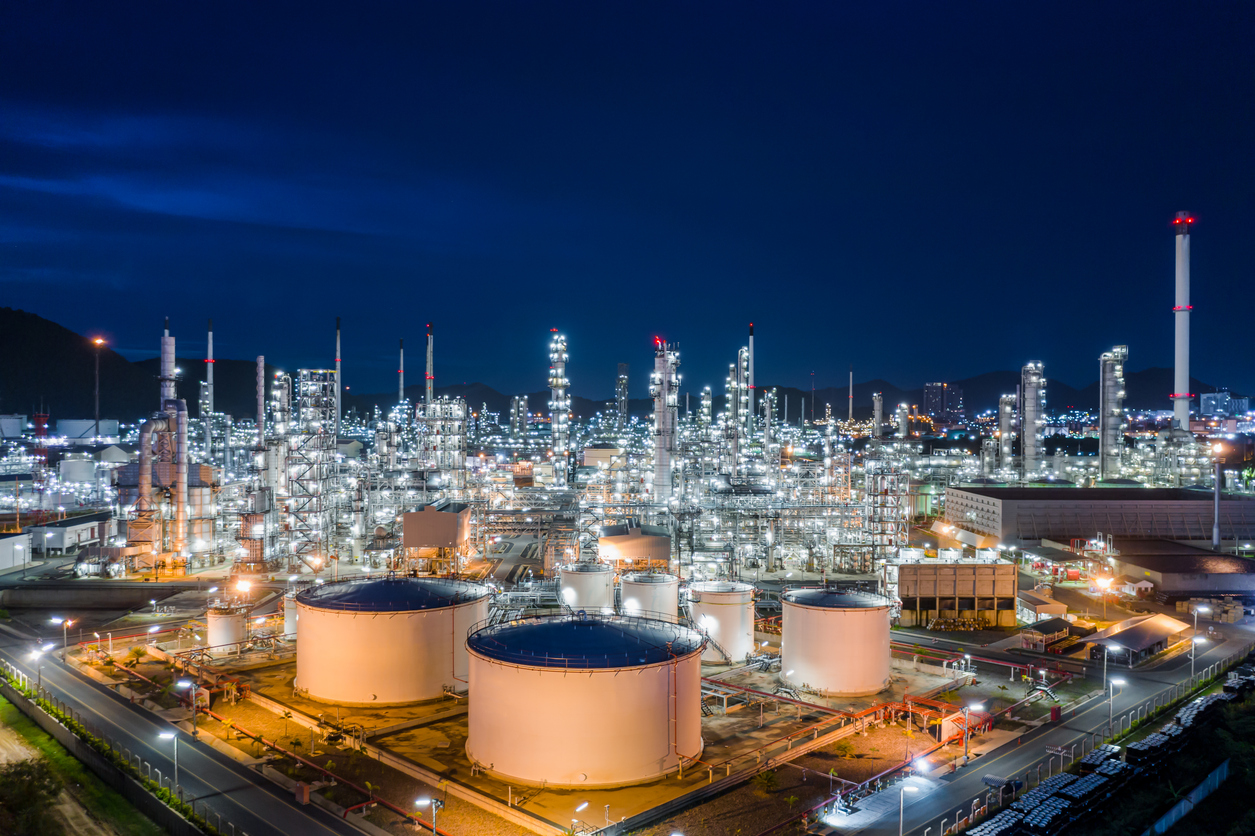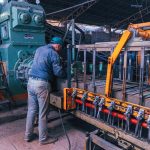When the Egina FPSO arrived at the SHI-MCI yard in Lagos on January 24, 2018, it marked a historic moment for African industrial capability. The massive floating production, storage and offloading vessel represented more than another oil project—it signaled the continent's first successful attempt at building the advanced infrastructure needed to compete in deepwater oil development.
Behind this achievement stood Simbi Wabote, who served as Executive Secretary of Nigeria's Content Development and Monitoring Board from 2016 to December 2023. Under his leadership, Nigeria transformed from a country that imported virtually all its oil and gas infrastructure to one capable of fabricating and integrating some of the industry's most complex equipment.
The numbers tell the story of this industrial transformation. Nigeria now hosts fabrication yards capable of producing 250,000 metric tons annually across facilities operated by SAIPEM, AVEON, NIGERDOCK, EWT NESTOIL, SHI-MCI, and MG VOWGAS. These facilities didn't exist at this scale when Wabote assumed leadership of NCDMB.
Building from Nothing
Nigeria's fabrication capacity development required deliberate intervention. International oil companies traditionally sourced complex equipment from established yards in Asia, Europe, and North America, leaving African countries as passive recipients of finished products.
The Egina project, launched after enactment of Nigeria's local content law, became the test case for changing this dynamic. Total, the project operator, faced requirements to conduct significant work within Nigeria rather than shipping everything from overseas yards.
NCDMB worked with project partners to establish the construction of an FPSO integration yard as part of what officials termed a "Capacity Development Initiative." Rather than simply demanding local participation, the board helped create the infrastructure needed to make that participation possible.
The SHI-MCI yard at LADOL in Lagos emerged from this collaboration. Samsung Heavy Industries, one of the world's leading shipbuilders, partnered with local interests to establish integration capabilities that previously didn't exist in West Africa.
Technical Achievements
The Egina FPSO integration project demonstrated Nigeria's ability to handle sophisticated offshore equipment. The vessel required integration of six separate topsides modules, each representing complex engineering and fabrication work.
Project documentation shows that 24 million man-hours of work were committed to Nigeria through the Egina development, equivalent to approximately 3,000 full-time jobs annually throughout the project's duration. This represented a massive transfer of technical knowledge and skills to the Nigerian workforce.
Engineering design work conducted within Nigeria totaled over 1.2 million man-hours, translating to about 1,000 direct engineering positions over a two-year period. This marked a significant departure from traditional offshore projects where design work remained concentrated in international engineering centers.
The integration yard's capabilities extended beyond basic assembly. Teams handled complex systems integration, testing, and commissioning work that required sophisticated technical expertise. The successful completion of the Egina FPSO integration demonstrated that Nigerian facilities could meet international standards for offshore equipment.
Broader Fabrication Network
While the FPSO integration yard captured headlines, Wabote's tenure saw expansion of fabrication capabilities across multiple facilities and companies. Major fabrication yards achieved combined annual capacity of 250,000 metric tons, a substantial increase from previous capabilities.
SAIPEM established heavy fabrication operations in Port Harcourt, handling large-scale structural work for offshore projects. The facility demonstrated capabilities in complex welding, machining, and assembly work that previously required overseas fabrication.
AVEON developed specialized capabilities including a duplex steel shop, addressing high-specification materials requirements for offshore applications. The company's Port Harcourt facility became capable of handling sophisticated metallurgical work.
EWT NESTOIL's heavy fabrication yard produced major equipment components including flare knock-out drums for the Egina FPSO project. The facility demonstrated Nigeria's ability to manufacture critical safety equipment to international specifications.
NIGERDOCK expanded its fabrication capabilities to handle larger, more complex projects. MG VOWGAS established additional capacity, contributing to the overall expansion of Nigerian fabrication infrastructure.
Pipe Manufacturing and Coating
Complementing the fabrication yards, Nigeria developed substantial pipe manufacturing and coating capabilities under Wabote's leadership. Two major pipe mills achieved combined capacity exceeding 550,000 metric tons annually.
Yulong Steel Pipe Mill in Lagos established 400,000 metric ton annual capacity for helical submerged arc welded (HSAW) pipe production. The facility addressed Nigeria's substantial pipeline infrastructure requirements while reducing dependence on imported pipe.
SCC Pipe Mill in Abuja added 150,000 metric ton annual capacity, also focusing on HSAW pipe production. Both facilities demonstrated Nigeria's ability to manufacture large-diameter pipeline infrastructure domestically.
Pipe coating capabilities expanded across five major facilities. AFRICOAT Services at LADOL developed capacity for coating pipes from 4 to 48 inches in diameter. SOLEWANT Nigeria Limited in Port Harcourt established 3-7 layer polypropylene coating capabilities for pipes ranging from 3 to 56 inches.
PIPECOATERS Nigeria Limited developed three-layer low-density polyethylene and five-layer low-density polyethylene coating capabilities. Yulong's coating facility handles fusion bonded epoxy, two-layer polyethylene, three-layer polypropylene, three-layer polyethylene, and bitumen coating systems.
SCC Nigeria Limited established three-layer polyethylene, three-layer polypropylene, fusion bonded epoxy, bitumen, and glass flake epoxy coating capabilities.
Economic Impact
The fabrication capacity development created substantial employment opportunities. Direct employment in fabrication facilities reached thousands of positions, while indirect employment through supply chains and support services multiplied the economic impact.
The facilities attracted international partnerships, bringing technology transfer and skills development that extended beyond individual projects. Nigerian workers gained experience with advanced welding techniques, quality control systems, and project management approaches used in international offshore development.
Local content requirements ensured that projects utilized these newly developed capabilities. Rather than allowing international contractors to bypass domestic facilities, NCDMB enforced utilization requirements that justified the infrastructure investments.
The economic multiplier effects extended to support industries. Steel supply, transportation, logistics, and professional services all benefited from the expanded fabrication activity.
Technology Transfer
Perhaps most significantly, the fabrication capacity development facilitated substantial technology transfer to Nigerian companies and workers. Previously, sophisticated offshore fabrication techniques remained concentrated in established international centers.
The Egina project alone required Nigerian teams to master FPSO integration techniques, topsides module assembly, and complex systems commissioning. These capabilities, once developed, became available for future projects.
Engineering design capabilities expanded as international companies established local design centers or partnered with Nigerian engineering firms. The 1.2 million man-hours of engineering work on Egina represented a substantial knowledge transfer.
Quality control and inspection capabilities developed to meet international offshore standards. Nigerian companies and workers gained certification and experience with demanding technical specifications required for deepwater equipment.
Sustainable Foundation
The fabrication infrastructure developed during Wabote's tenure created a sustainable foundation for continued industrial development. Unlike temporary capacity that disappears when projects end, the yards, equipment, and skilled workforce remain available for future projects.
Nigeria's fabrication capabilities now position the country to compete for regional projects beyond its borders. Other African countries developing offshore resources could potentially utilize Nigerian fabrication services, creating export opportunities for the industrial capacity.
The infrastructure also supports Nigeria's domestic energy development. Gas processing facilities, refineries, and other industrial projects can utilize locally available fabrication services rather than depending entirely on imported equipment.
Legacy Achievement
The transformation of Nigeria from equipment importer to fabrication hub represents one of the most tangible achievements of Wabote's tenure at NCDMB. The 250,000-ton annual fabrication capacity and Africa's first FPSO integration yard stand as concrete evidence of successful industrial policy implementation.
These facilities continue operating beyond Wabote's departure from government, providing ongoing employment and industrial capability. The infrastructure investments created during his leadership established Nigeria as a regional center for offshore equipment fabrication and integration, a position that seemed impossible when he assumed office in 2016.













